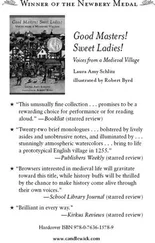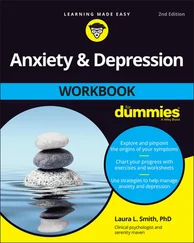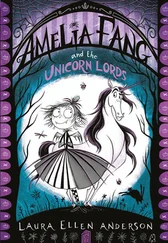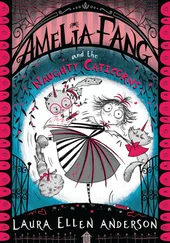Laura Schlitz - Splendors and Glooms
Здесь есть возможность читать онлайн «Laura Schlitz - Splendors and Glooms» весь текст электронной книги совершенно бесплатно (целиком полную версию без сокращений). В некоторых случаях можно слушать аудио, скачать через торрент в формате fb2 и присутствует краткое содержание. Год выпуска: 2012, ISBN: 2012, Издательство: Candlewick Press, Жанр: Старинная литература, на английском языке. Описание произведения, (предисловие) а так же отзывы посетителей доступны на портале библиотеки ЛибКат.
- Название:Splendors and Glooms
- Автор:
- Издательство:Candlewick Press
- Жанр:
- Год:2012
- ISBN:978-0-7636-6246-2
- Рейтинг книги:5 / 5. Голосов: 1
-
Избранное:Добавить в избранное
- Отзывы:
-
Ваша оценка:
- 100
- 1
- 2
- 3
- 4
- 5
Splendors and Glooms: краткое содержание, описание и аннотация
Предлагаем к чтению аннотацию, описание, краткое содержание или предисловие (зависит от того, что написал сам автор книги «Splendors and Glooms»). Если вы не нашли необходимую информацию о книге — напишите в комментариях, мы постараемся отыскать её.
Splendors and Glooms — читать онлайн бесплатно полную книгу (весь текст) целиком
Ниже представлен текст книги, разбитый по страницам. Система сохранения места последней прочитанной страницы, позволяет с удобством читать онлайн бесплатно книгу «Splendors and Glooms», без необходимости каждый раз заново искать на чём Вы остановились. Поставьте закладку, и сможете в любой момент перейти на страницу, на которой закончили чтение.
Интервал:
Закладка:
“I know,” Clara interrupted him. “He would have been twelve years old today. We went to Kensal Green, the way we always do, because it was his birthday, and we went in the mausoleum and cried.” She spoke the last word flatly; crying was an essential part of the outing. “I hate the mausoleum. I hate seeing the caskets and the space on the shelf next to Charles Augustus — I hate looking at it and thinking that I shall have to lie there one day, all dark and dead and cold. And”— her face twisted, making her ugly in her father’s eyes —“my casket will be bigger than his, because I’m older, which isn’t fair, because we’re twins —”
“Clara,” Dr. Wintermute said, “please.”
Clara twisted her handkerchief. “I’m sorry,” she said levelly, “but it’s every birthday and every Christmas and every Easter. And Sundays. And after we cry at Kensal Green, we come home and look at their pictures in the photograph album and pray and cry some more. And every birthday Mamma gives me presents from the Others.” She pointed to the table across the room. “The lace collar and cuffs are from Selina and Adelaide. And Quentin always gives me chocolates. The toy theatre is from Charles Augustus.” She drew in a ragged breath. “That was clever, the toy theatre — I like it. I miss him. He ought to have been the one who lived —”
Dr. Wintermute stiffened. Clara had touched a nerve. He was ashamed of it, but he often found himself wishing that Charles Augustus had been the twin to survive the cholera. It was his most terrible secret. He loved Clara. He was quite sure he loved her, though he sometimes felt he didn’t know her very well. But a man needed a son. Dr. Wintermute had placed his dearest hopes in his firstborn son. Charles Augustus had been a promising boy, bright and strong and handsome. The deaths of baby Quentin and his other two daughters were deep wounds, but nothing was worse than the loss of Charles Augustus.
Clara’s breath was coming in gasps and spasms. Dr. Wintermute forced his attention back to his daughter. “Clara,” he said, “please stop crying.”
Clara averted her face.
“Your mother will forgive you in time,” Dr. Wintermute assured her. “You must remember”— with a twisted smile —“you’re the only little girl we have. Your mother loves you. As do I.” He forced himself to lean over the bed and kiss his daughter’s wet cheek.
Clara clung to him, pressing her face against his sleeve. He could feel her shaking. “I ought to have eaten the watercress,” she said. “If I’d eaten the watercress, I’d have —”
Dr. Wintermute could bear no more. “For God’s sake, Clara!” he said. “You must not say these things. You are making yourself ill.” He heard footsteps on the stairs: Miss Cameron was returning with the glass of hot milk. His heart lifted. All at once he could not wait to return to his quiet study, with its glowing fire and decanter of port.
He pried Clara’s arms loose and stood up, smoothing his wrinkled coat. Clara looked straight into his face. Her eyelids were red, but her gaze was like a lance. Dr. Wintermute had a sudden, uncomfortable conviction that she had seen into his soul. It was a look he was to remember often in the weeks to come.

November the sixth was also the witch’s birthday. There were no parcels, no letters, and no cake; Cassandra did not expect anyone to wish her many happy returns, and she would have been rude if anyone had. She saw no visitors but the doctor, who examined her mutilated hand and tried, once again, to explain that the safest course would be to amputate. Cassandra made use of her good hand to seize the tray of medicine bottles by her bed and hurl it at him. The doctor backed up, stammering apologies, and the servants hastened to show him out.
Exhausted by her tantrum, Cassandra fell asleep and did not awaken until after dark. The pain in her hand was sharper. It throbbed like a drumbeat, making her head reel. She felt like a wolf with its paw in a trap. She wished she had a wolf’s courage and could bite off her hand at the wrist, separating herself from the pain.
She sat up and drew the bed curtains, craving cold air. Her thumbnail scratched at the filigree locket, feeling for the spring that would release the fire opal. At last she found it, and the phoenix-stone fell onto the counterpane. Cassandra rubbed it against her swollen hand, rolling it like a child playing with a marble.
The pain changed. It did not leave her but became a fierce and gnawing pleasure. Tears of relief filled the witch’s eyes. Cassandra knew that the phoenix-stone would heal her. Underneath the swollen flesh, the bones were knitting. She fixed her eyes on the jewel as it tumbled and twirled.
The colors held her spellbound. For seventy-one years, she had gazed into the stone and never grown weary of it. Sometimes the colored flames inside it were sharp edged, like sparks or crystals; at other times they were long and sinuous, like eels in a scarlet sea. No pleasure in her life could rival this: the glamour of the shifting colors and the dulling of her pain.
How could she have dreamed of crushing the stone? She had come close to losing it; she had wielded the silver mirror with force enough to shatter the metacarpal bones in her hand. If her arm had not changed direction, she would have lost everything: color and power and healing. Cassandra shut her eyes at the thought. Then she cried out. Like a seam drawn tight, the skin on the back of her hand was puckering. The opal had raised a blister.
Cassandra shuddered. Then she steadied herself. She worked the fire opal into its filigree cage and shut the clasp. A wave of fever washed over her. She thrust aside the tangled bedclothes and hauled herself out of the bed, seeking the draft from the ill-glazed windows. She drew the draperies and gazed into the darkness.
Outside, the night was icy and serene. A gibbous moon hung above Lake Windermere. She saw its light shimmer on the surface of the water, and thought of how cold the water must be. She wished she were strong enough to leave the house and go down to the lake. The glacial waters would be chill and clean, and she had heard that drowning was painless. Whereas fire —
She shook her head. She was not the sort of weakling who killed herself. While she lived, she would fight. There must be some way to tame the fire opal before the fever consumed her. Even Grisini had said unless. There must be a solution, and he had nearly told her what it was. Once again she vowed to herself that she would not send for him; she would never humble herself to ask him for help. Nevertheless —
She turned from the window, catching sight of the mirror over the mantelpiece, and gasped aloud. The reflection in the glass was not her own. A young woman stood lashed to a wooden stake. A crowd of people surrounded her, faceless in the smoke. The woman was burning, and her mouth opened in a soundless scream.
Cassandra wondered if she were dreaming. She looked from side to side, seeking comfort in the presence of familiar things. Carved wood and red damask, gilded chair and dressing table, candlestick and washstand, and the lake outside the window . . . She was awake. She was not dreaming.
Her eyes went back to the looking glass. Another woman had appeared: an older woman this time, with wild hair and a haggard countenance. She, too, was burning — until the smoke blotted her out and the witch beheld a third woman: one whose face reminded Cassandra of her only childhood friend. The third victim of the flames was not Marguerite, but she resembled her: her long curls caught the blaze and soared upward.
Читать дальшеИнтервал:
Закладка:
Похожие книги на «Splendors and Glooms»
Представляем Вашему вниманию похожие книги на «Splendors and Glooms» списком для выбора. Мы отобрали схожую по названию и смыслу литературу в надежде предоставить читателям больше вариантов отыскать новые, интересные, ещё непрочитанные произведения.
Обсуждение, отзывы о книге «Splendors and Glooms» и просто собственные мнения читателей. Оставьте ваши комментарии, напишите, что Вы думаете о произведении, его смысле или главных героях. Укажите что конкретно понравилось, а что нет, и почему Вы так считаете.










